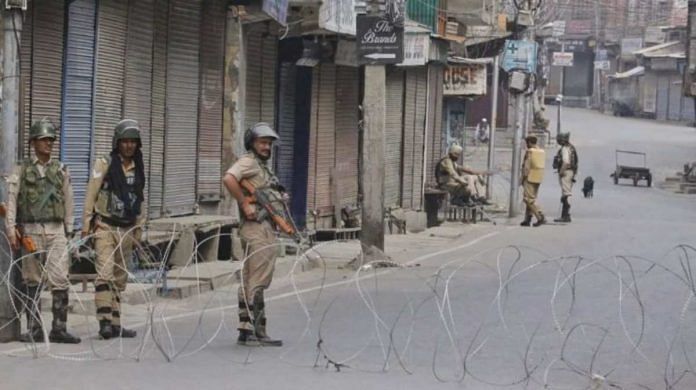New Delhi: In strongly tweets quoting a Chinese media report, Chinese foreign ministry spokesperson Lijian Zhao blamed Britain for the “bloodshed” that continues in Kashmir.
“If British India was the jewel in the crown of the British Empire, then Kashmir has been the biggest crack in it when the crown finally fell over on that land,” he posted Friday.
If British India was the jewel in the crown of the British Empire, then Kashmir has been the biggest crack in it when the crown finally fell over on that land.https://t.co/OpR2tcIVeb
— Lijian Zhao 赵立坚 (@zlj517) May 28, 2021
The spokesperson was quoting from a report, titled ‘Kashmir: A Crack in the Jewel in the Crown of the British Empire’, which was published by state-run Xinhua News Agency on 18 May.
“As long as the bloodshed in Kashmir continues, Britain can never clean itself from its bloody colonial past,” the report said.
This comes amid the ongoing border conflict between India and China. On Friday, External Affairs Minister S. Jaishankar met US Secretary of State Antony Blinken and they discussed the India-China conflict among other issues.
Also read: News to celebrate from Jammu & Kashmir, two-thirds of 45+ vaccinated, leads in India
‘Imperial past is far from being dead’
Quoting writings of Press Trust of India journalist Shakoor Rather and former Supreme Court judge Markandey Katju, the report blames British imperialism, the policy of “divide and rule” and Partition for the continued violence in Kashmir.
“The imperial past is far from being dead,” said the report, adding: “We should not be surprised when British foreign policy interests and interventions today are perceived by many as ‘neo-colonial’ in their nature.”
Claiming that Muslims and Hindus were once able to “maintain amity and peace”, the report said: “Indian politician Markandey Katju wrote in his book The Nation, that ‘Up to 1857, there were no communal problems in India. Hindus and Muslims used to help each other. The Muslim rulers […] were totally secular; they organized Ramlilas, participated in Holi, Diwali’.”
It, however, made an error here. Katju has not written a book by the title of ‘The Nation’, but made the statement in an op-ed for Pakistani newspaper The Nation in March 2013.
The Xinhua report also criticised the Mountbatten Plan, formulated by the last British Viceroy of India. The Mountbatten Plan said all princely states could decide for themselves to join India or Pakistan “but Kashmir was treated differently”, noted the report.
The report even quoted former UK prime minister David Cameron who, while answering questions from students in Pakistan in 2011, had said: “As with so many of the problems of the world, we are responsible for their creation in the first place.”
Also read: US Secretary of State Blinken reaffirms Biden’s commitment to deepen India-US ties



